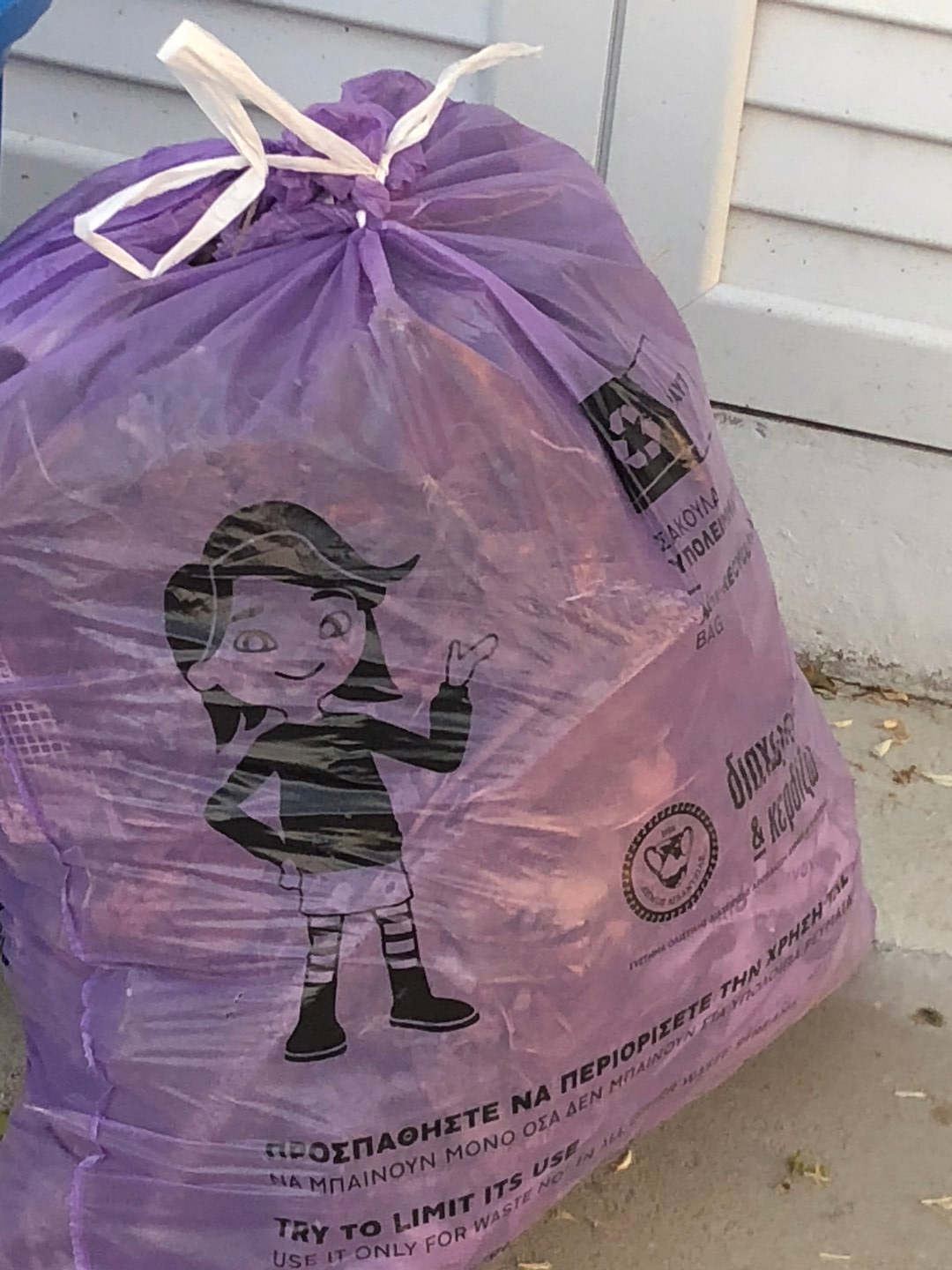Having been closely involved in the development and operation of eco-friendly domestic waste processing facilities, I wish to offer informed comments on the proposed Pay As You Throw (PAYT) scheme, as discussed in the Cyprus Mail between October 2024 and February 2025.
The PAYT scheme, which mandates the use of prepaid rubbish bags for household waste, is being introduced across Cyprus to comply with EU directives and to access EU Cohesion Funds. While the stated aim is to promote source separation, reduce landfill reliance and align with the Polluter Pays Principle, I am concerned that the scheme, as currently designed, risks being more of a revenue-generating mechanism than a genuine environmental solution.
Cyprus lacks the necessary infrastructure for effective source separation and organic waste processing. Both the Koshi and Pentakomo plants are not equipped to handle the mixed and contaminated waste streams that will result from the current PAYT approach. As local officials and experts have noted, introducing PAYT without first upgrading facilities is “putting the cart several miles before the horse”.
Increased costs for households: Contrary to initial promises, the PAYT scheme is expected to increase annual waste management costs for households to between €150 and €250, higher than current rates. This has led to disappointment and frustration among both the public and parliamentary committee members, who expected lower costs as an incentive for better waste practices.
Risk of illegal dumping and ‘waste tourism’: Higher costs and enforcement challenges may drive some residents to dispose of waste illegally or in neighbouring municipalities, as already observed in pilot areas. This undermines the scheme’s environmental objectives and places additional burdens on local authorities.
Unresolved technical and logistical issues: The one-size-fits-all approach does not account for the diverse needs of urban, suburban and rural communities, or the specific challenges faced by apartment dwellers in high-rise buildings. The scheme also increases the use of millions of additional plastic bags, which most processing plants cannot handle efficiently, leading to further contamination and landfill use.
Failure to address prevention and producer responsibility: The PAYT scheme focuses almost exclusively on household waste, targeting the weakest link in the polluter hierarchy. There is insufficient emphasis on waste prevention, public education, or holding producers – such as manufacturers, supermarkets, and the hospitality sector – accountable for their share of the waste stream.

Environmental and operational impact
• Cyprus continues to generate municipal waste at rates far above the EU average, with over 75 per cent still ending up in landfills and recycling rates lagging behind EU targets. The introduction of PAYT, without robust infrastructure and public engagement, risks exacerbating existing problems rather than solving them.
• The current waste management plants are not designed for the increased volume of plastic bags and organic waste that PAYT will generate, leading to operational inefficiencies and increased environmental harm from plastics and methane emissions. Recommendations
• Infrastructure first: Prioritise upgrading and expanding waste processing facilities, especially for organic and separately collected waste, before implementing PAYT on a wide scale.
• Tailored solutions: Develop collection and processing strategies that reflect the needs of different communities and dwelling types, rather than a blanket approach.
• Producer responsibility: Shift focus towards upstream solutions, including stricter regulations and incentives for producers to reduce packaging and improve recyclability.
• Public education and engagement: Invest in sustained public awareness campaigns to build a culture of waste prevention and proper sorting, which is essential for the success of any PAYT system.
• Integrated waste management: Explore the feasibility of innovative processing plants that can handle mixed, both wet and dry, waste streams efficiently, as the technology is available and proven in other jurisdictions for mixed rural domestic waste (RDW). There is no need to segregate at source. This exceeds the EU Waste Framework Directive (WFD) by diverting in less than three hours 80 to 90 per cent of the RDW stream from landfill. Waste ceases to be waste and becomes organic matter and secondary marketable raw material without endangering human health and harming the environment.
The PAYT scheme, in its current form, risks becoming an expensive and divisive measure that fails to deliver on its environmental promises. Without substantial investment in infrastructure, public engagement and a broader focus on prevention and producer responsibility, Cyprus will continue to struggle with waste management and risk further EU penalties.
I urge policymakers to reconsider the rollout strategy and prioritise comprehensive, sustainable solutions.
Charles El-Haddad, Simou, Paphos






Click here to change your cookie preferences